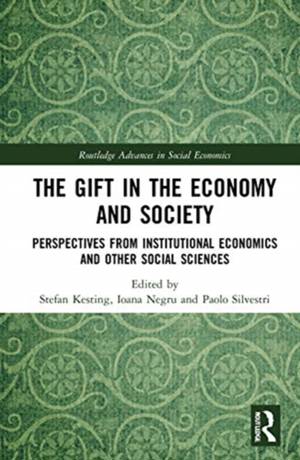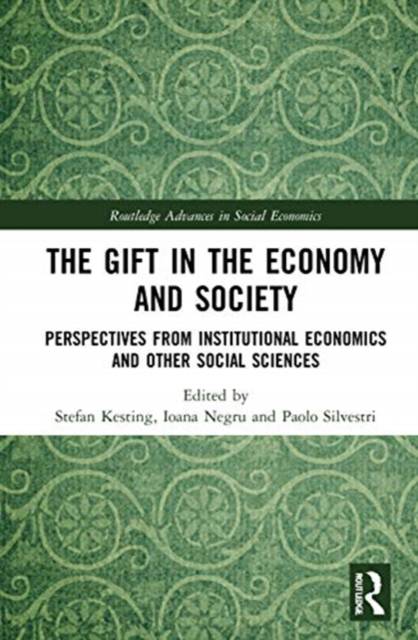
- Retrait gratuit dans votre magasin Club
- 7.000.000 titres dans notre catalogue
- Payer en toute sécurité
- Toujours un magasin près de chez vous
- Retrait gratuit dans votre magasin Club
- 7.000.0000 titres dans notre catalogue
- Payer en toute sécurité
- Toujours un magasin près de chez vous
The Gift in the Economy and Society
Perspectives from Institutional Economics and Other Social Sciences
Description
Mainstream economics offers a perspective on the gift which is constructed around exchange, axioms of self-interest, instrumental rationality and utility-maximisation - concepts that predominate within conventional forms of economic analysis. Recognising the gift as an example of social practice underpinned by social institutions, this book moves beyond this utilitarian approach to explore perspectives on the gift from social and institutional economics.
Through contributions from an international and interdisciplinary cast of authors, the chapters explore key questions such as: what is the relationship between social institutions, on the one hand, and gift, exchange, reciprocity on the other? What are the social mechanisms that underpin gift and gift-giving actions? And finally, what is the relationship between individuals, societies, gift-giving and cooperation? The answers to these questions and others serve to highlight the importance of the analysis of gift in economics and other social sciences. The book also demonstrates the potential of the analysis of the gift to contribute to solving current problems for humanity at various levels of social aggregation.
This key text makes a significant contribution to the literature on the gift which will be of interest to readers of heterodox economics, social anthropology, philosophy of economics, sociology and political philosophy.
Spécifications
Parties prenantes
- Editeur:
Contenu
- Nombre de pages :
- 216
- Langue:
- Anglais
- Collection :
Caractéristiques
- EAN:
- 9780367491062
- Date de parution :
- 29-12-20
- Format:
- Livre relié
- Format numérique:
- Genaaid
- Dimensions :
- 155 mm x 239 mm
- Poids :
- 498 g

Les avis
Nous publions uniquement les avis qui respectent les conditions requises. Consultez nos conditions pour les avis.





